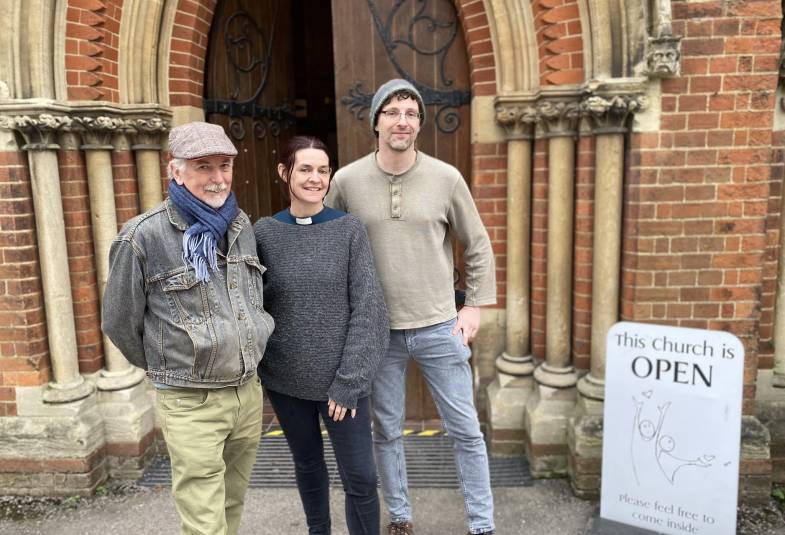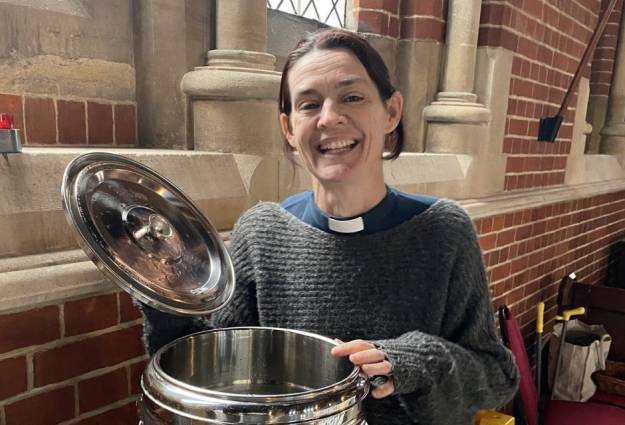22/01/2024

A busy city church has saved thousands of pounds on its energy bills thanks to making a number of small changes to reduce its carbon footprint and help care for God’s creation.
Over the last year, Priest in Charge Revd Sera Rumble and a team of passionate volunteers at St Deny’s Church, on the edge of the inner city of Southampton, have made subtle changes to reduce the church’s energy consumption and as a result have saved an estimated £5,000 off their annual £20,000 utilities bill.
The changes have included switching halogen lightbulbs for LED lighting; replacing kettles for triple-insulated urns; insulating pipes throughout the building; monitoring electricity use through smart meters, buying heated pads for office chairs and installing automatic timers for lights and electric heaters.
St Deny’s Church is housed in a large Victorian building attached to a 1990s church community centre - both are open and used seven days a week from 9am to 10pm serving the local neighbourhood through food projects, free Sunday dinners for the community, local arts and crafts, memory cafes and toddler and parent groups.
The needs of the food projects and hospitality mean there are at least seven fridges and freezers onsite, and commercial ovens and multiple urns that are used heavily (and sometimes left on) – leading to high energy costs, which spurred the church to start tracking its energy consumption and identifying its ‘hidden electricity drinkers.’
Revd Sera and volunteers - mechanical engineer Mike Strickland and historic buildings advisor Frank Green have been at the heart of all the changes, alongside the congregation and community.
Revd Sera explains how they got started: “A lot of us are passionate about the environment and we do care. We had to take out a new electricity tariff and our electricity rates were going to go up huge, so it was an environmental and a financial push – they were the pull factors. And a few passionate people, including Frank, Mike, and other volunteers Dave and Rod, who were willing to make things happen.”
Mike added: “We’re the victims of our own success in a way. It’s the fact we’re serving our community and using our building which has pushed up our energy use. There’s so many reasons as a church as to why we are tackling our energy use and doing our bit to reduce our carbon.”
“Loving the local people, loving the planet, loving the people in this world who are struggling with conflict, loving our community and to be able to afford to do this and keep doing it. All of these reasons kind of build on the church’s mission – we’re not just doing this because we are ‘greenies’ (although we probably are!) - but this is part of loving the world out there and loving the world around here.”
The church’s mission to reduce its carbon footprint supports the Church of England’s ambitious national Net Zero by 2030 programme, which aims to reduce carbon emissions from the energy used in its churches, schools, cathedrals, houses and other buildings, saving money by improving the energy efficiency of buildings, and switching to more renewable energy sources.
St Deny’s Church has been identified as one of 600 churches across England with the highest energy use and will have access to a fully funded Net Zero Carbon Programme energy audit and a small grant to help fund additional green projects.
The church now plans to look at its heating system, insulation and switching to a greener tariff as it continues its journey to be Net Zero Carbon.
